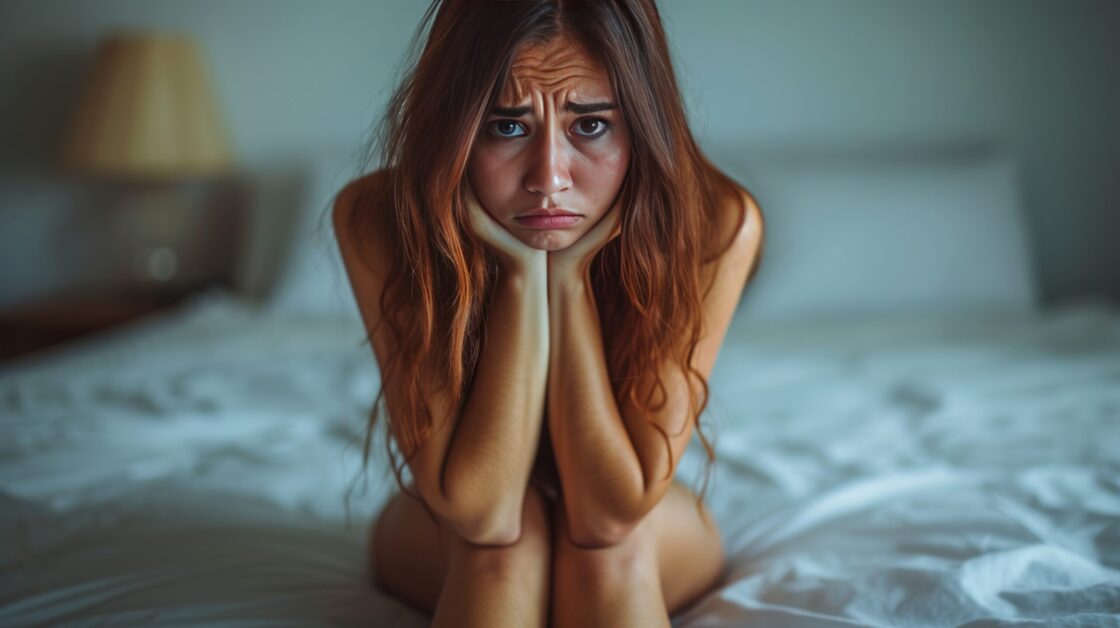All About Anxiety Disorder
Types | Symptoms | Causes | Anxiety Attack | Natural Remedies | Anxiety in Children | Anxiety in Teens | Anxiety with Alcohol | Anxiety with Stress | Foods | Treatment | Prevention |
Overview:

Anxiety disorders are a collection of mental health situations characterised via excessive worry, worry, or anxiousness that intrude with every day existence. Whilst occasional tension is a everyday reaction to pressure, individuals with tension disorders experience it extra intensely, often, and often without clean triggers.
Types of Anxiety Disorders:
- Generalized Anxiety Disorder (GAD): Chronic, immoderate worry approximately everyday conditions.
- Panic Disorder: Recurrent, unexpected panic attacks (unexpected intervals of extreme worry).
- Social Anxiety Disorder: Intense fear of social conditions because of worry of being judged.
- Specific Phobias: Irrational fears of specific objects or situations.
- Agoraphobia: Fear of situations in which escape is probably tough (e.G., crowded locations).
- Separation Anxiety Disorder: Worry of being aside from cherished ones, more not unusual in kids.
- Obsessive-Compulsive Disorder (OCD): Recurrent mind (obsessions) leading to repetitive behaviors (compulsions).
- Post-Traumatic Stress Disorder (PTSD): Tension following a demanding occasion.
Symptoms:
- Physical Symptoms:
- Muscle tension, headaches, gastrointestinal troubles.
- Rapid coronary heart beat, sweating, shaking, dizziness.
- Emotional Symptoms:
- Continual fear, worry, or nervousness.
- Irritability, restlessness, difficulty concentrating
- Behavioral Symptoms:
- Avoidance of situations that cause anxiety.
- Trouble drowsing or staying asleep (insomnia)
- Cognitive Symptoms:
- Racing mind, irrational fears, catastrophizing (questioning the worst will appear)
Causes:
- Genetic Factors: Own family records of hysteria or different mental fitness disorders.
- Environmental Factors: Stressful life events (e.g., trauma, abuse, death of a loved one).
- Biological Factors: Imbalance in brain chemicals (neurotransmitters like serotonin and dopamine).
- Personality Traits: Perfectionism, shyness, or being prone to stress.
- Substance Use: Drugs or alcohol can exacerbate anxiety.
Anxiety Attack (Panic Attack):
- Unexpected onset of intense worry or pain, with symptoms such as:
- Coronary heart palpitations, chest ache.
- Shortness of breath, dizziness.
- Feeling of choking, detachment from truth.
- Typically lasts for a few minutes however can feel overwhelming.
Natural Remedies for Anxiety:
- Mindfulness & Meditation: Practicing mindfulness can help reduce anxiety by focusing on the present moment.
- Breathing Exercises: Deep breathing helps calm the nervous system.
- Exercise: Regular physical activity can reduce anxiety by releasing endorphins.
- Herbal Remedies: Chamomile, lavender, and valerian root are known for his or her calming results.
- Aromatherapy: Essential oils like lavender and bergamot can reduce pressure levels.
- Yoga & Tai Chi: These practices combine movement and mindfulness to calm the mind.
Anxiety in Children:
- Common Symptoms: Clinginess, tantrums, sleep disturbances, refusal to go to school.
- Triggers: Changes in routine, separation from parents, fear of failure, bullying.
- Treatment: Play therapy, cognitive-behavioral therapy (CBT), routine-building
.
Anxiety in Teens:
- Symptoms: Irritability, social withdrawal, academic struggles, risky behavior.
- Triggers: Peer pressure, academic expectations, body image issues, social media.
- Treatment: CBT, talk therapy, mindfulness practices, support from school and family.
Anxiety with Alcohol:
- Anxiety and Alcohol: Some people use alcohol to cope with anxiety, but this can lead to a cycle of dependence.
- Alcohol-Induced Anxiety: Alcohol can initially reduce tension but get worse it lengthy-time period, main to extra extreme tension symptoms because the effects wear off.
Anxiety with Stress:
- Relationship Between Anxiety and Stress: Annoying occasions (paintings, relationships, financial troubles) can trigger or get worse tension. Continual strain alters mind feature, which may result in anxiety disorders.
Foods That Help with Anxiety:
- Magnesium-Rich Foods: Leafy greens, nuts, seeds.
- Omega-3 Fatty Acids: Salmon, flaxseeds, walnuts.
- Probiotics: Yogurt, kimchi, sauerkraut for gut health.
- B-Vitamins: Eggs, whole grains, avocado.
- Antioxidants: Berries, dark chocolate, green tea.
- Complex Carbohydrates: Oats, sweet potatoes, quinoa to stabilize blood sugar levels.
Treatment for Anxiety:
- Cognitive-Behavioral Therapy (CBT): The most effective treatment for many anxiety disorders.
- Medication: Selective serotonin reuptake inhibitors (SSRIs), benzodiazepines for short-term relief, beta-blockers for physical
symptoms. - Psychotherapy: Talk therapy, exposure therapy, or group therapy.
- Lifestyle Changes: Regular exercise, sufficient sleep, reducing caffeine, practicing relaxation techniques.
- Support Groups: Connecting with others who understand anxiety can provide comfort and guidance.
Prevention:
- Healthy Lifestyle: Regular physical activity, healthy diet, good sleep hygiene.
- Stress Management: Learning to manage stress through mindfulness, time management, and relaxation techniques.
- Limit Stimulants: Reducing caffeine and alcohol consumption.
- Building Resilience: Develop problem-solving skills and maintain a support network.
- Early Intervention: Recognizing early signs and seeking help can prevent anxiety from worsening.


2 thoughts on “Anxiety Disorders – Types, symptoms And Treatment.”